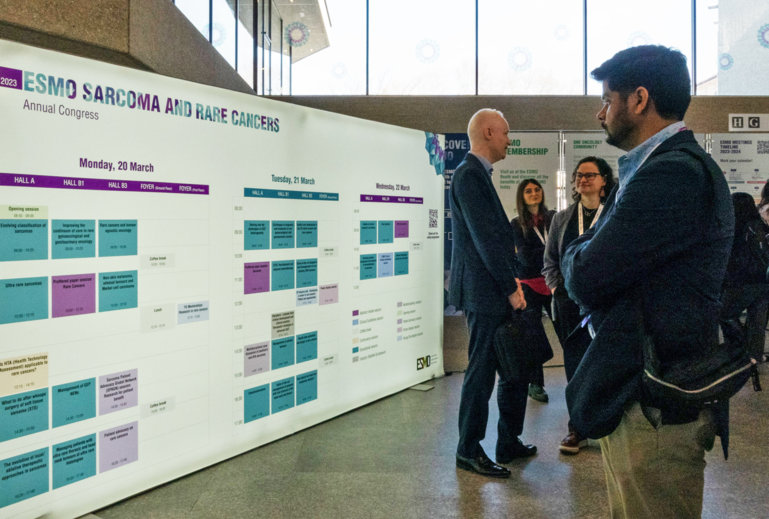
Growing evidence supports the use of ctDNA as a biomarker in colon cancer
Data from clinical trials show the value of liquid biopsy in treatment decision-making and prognostication

Data from clinical trials show the value of liquid biopsy in treatment decision-making and prognostication

A study illustrates a methodology that shows promise to distinguish true negative liquid biopsy results from indeterminate results that may benefit from follow-up tissue testing

ctDNA offers immense possibilities for improving the management of early-stage lung cancer and the area is primed for new trials to test this approach in the context of minimal residual disease

Personalised proteogenomics has the power to transform the identification, staging and management of NSCLC in never smokers

In patients with metastatic castration-resistant prostate cancer, early genetic testing may help personalise treatments in the first-line as a study suggests

The 2024 TAT Honorary Awardee Prof. Funda Meric-Bernstam discusses progress made and how to overcome current obstacles in the field

Addressing cost and affordability issues is now key to increasing the use of this approach in the clinical setting in Asia

Cancer imaging and identification of predictive biomarkers are the best performed tasks reported in studies presented at ESMO Congress 2023

Activating EZH2 mutations may define a new subset of aggressive Ewing sarcomas that benefit from treatment with an EZH2 inhibitor

A Spanish study describes the genomic characterisation of neuroendocrine neoplasms as the first step towards more personalised management
This site uses cookies. Some of these cookies are essential, while others help us improve your experience by providing insights into how the site is being used.
For more detailed information on the cookies we use, please check our Privacy Policy.
Necessary cookies enable core functionality. The website cannot function properly without these cookies, and you can only disable them by changing your browser preferences.